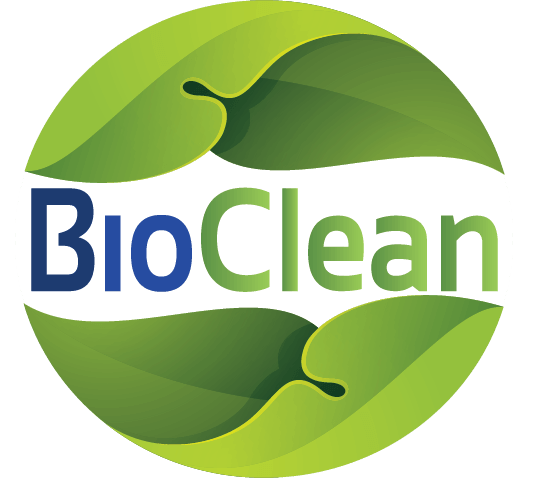Keep Your Tenants Safe With Mold Inspections
When you're a landlord, you have lots of things to do and maintenance to keep track of. Mold inspections might fall to the bottom of your to-do list. However, mold inspections are vital to keep your tenants safe and happy.
Why Should I Get Periodic Mold Inspections at My Rental Properties?
Mold inspections are a great example of preventative maintenance that keeps problems from spiraling out of control. Let's take a look at a few reasons why mold inspections are so important.
- Mold can quickly become a huge problem. Mold is very common in homes. Mold grows well in drywall, carpet, and wood, making your home a prime spot for mold to take hold. If those materials get wet, mold can grow in as little as 24 to 48 hours.
- Mold can indicate other issues with your property. Since mold needs moisture to grow, mold growth can indicate you have a burst pipe, a leak, or some other kind of water damage. Even without a lot of mold growth, water damage can be costly. The longer leaks are left unattended, the more damage you'll have to fix. By catching mold early, you can catch leaks early, too.
- Mold can make your tenants sick. Not only does mold reduce your property value, it can even make your tenants sick. Mold can cause allergic reactions, asthma attacks, and irritation in your eyes, throat, nose, and lungs. By inspecting your properties, you can catch mold issues while they're small, so your tenants can be safe and healthy in their rentals.
When Should I Hire a Professional?
So you are convinced mold inspections are important. When should you hire a professional?
- For routine inspections. Professionals have specialized tools to catch mold early. For example, they can use moisture meters to detect moisture in your properties even when there isn't any visible mold. They won't miss mold in hard-to-reach places, like behind walls or in the attic. You can set your tenants' minds at ease by calling in mold inspection professionals.
- If you have water damage. Mold grows so quickly in moist conditions that it's a good idea to call a professional as soon as you notice any water damage. Some professionals can even help you prevent further water damage with services like basement waterproofing, which will keep your basement dry and free of mold.
Legal Responsibilities: What Landlords Need to Know About Mold
As a landlord, mold issues can turn into legal liabilities if not addressed properly. While laws vary by state, landlords are generally responsible for providing a habitable living space. Here’s what you should know:
- Tenant Rights & Mold Disclosure: In many states, landlords are required to disclose known mold problems before a lease is signed. Failure to do so can lead to legal action.
- Mold Remediation Requirements: If mold is caused by a plumbing issue, roof leak, or other structural problem, it is typically the landlord’s responsibility to fix the issue and remove the mold.
- Health & Safety Violations: Ignoring mold complaints can result in fines, lawsuits, or forced property repairs by local housing authorities.
By proactively scheduling mold inspections, landlords can protect their properties and avoid legal trouble.
How to Prevent Mold in Rental Properties
Regular mold prevention can save landlords thousands of dollars in costly repairs and tenant disputes. Here’s how you can keep your rental units mold-free:
- Ensure Proper Ventilation: Bathrooms, kitchens, and basements should have working exhaust fans or windows to prevent moisture buildup.
- Fix Leaks Immediately: Plumbing leaks, roof damage, or foundation cracks should be repaired as soon as possible.
- Use Mold-Resistant Materials: Consider using mold-resistant drywall and paint in high-moisture areas.
- Control Humidity Levels: Keep indoor humidity levels below 50% using dehumidifiers or HVAC systems with humidity control.
- Educate Tenants: Provide tenants with guidelines on preventing mold, such as reporting leaks immediately and using bathroom fans after showers.
Implementing these preventative measures can reduce mold risks and keep your properties in top condition.
What Happens During a Professional Mold Inspection?
If you’ve never hired a mold inspector before, you may be wondering what to expect. Here’s what a professional mold inspection typically includes:
- Visual Inspection: The inspector will check common mold-prone areas like bathrooms, basements, attics, and HVAC systems.
- Moisture Readings: Using moisture meters and thermal imaging cameras, professionals can detect hidden leaks and damp areas behind walls.
- Air & Surface Testing: Some inspectors take air and surface samples to identify mold species and determine if the mold is toxic.
- Detailed Report: After the inspection, you’ll receive a comprehensive report outlining any mold issues, moisture problems, and recommended solutions.
Regular professional inspections can prevent mold from spreading and save you money on major repairs down the line.
BioClean Can Help
At BioClean, we can help you inspect your properties for mold. Don't wait until your tenants find visible mold or get sick. Contact us today for a free inspection.
